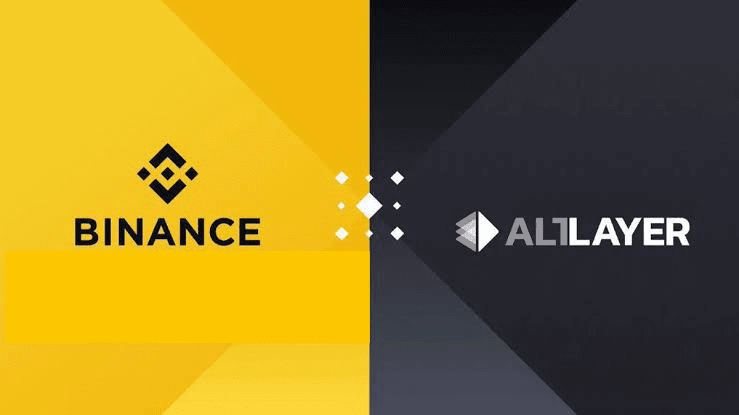 web3.0
web3.0 Silvergate, the bank brought down by FTX's bankruptcy, settles with Federal Reserve, SEC for $63 million in fines
Silvergate, the bank brought down by FTX's bankruptcy, settles with Federal Reserve, SEC for $63 million in fines
- Silvergate executives, including former chief executive Alan Lane, former chief operating officer Kathleen Fraher and former chief financial officer Antonio Martino, are also among the defendants. The Federal Reserve (Fed) and the California Department of Financial Protection and Innovation (DFPI) also filed charges against Silvergate Bank.
- In today’s statement, the SEC alleged that Silvergate’s automated transaction monitoring system failed to monitor more than $1 trillion in customer transactions on the bank’s Silvergate Exchange Network (SEN).
- “After the collapse of one of Silvergate’s largest banking clients, FTX, instead of being honest with investors about the serious flaws in their compliance program, they doubled down on their [crypto business] and misled investors about the soundness of their program. In fact. , due to these flaws, Silvergate failed to detect nearly $9 billion in suspicious transfers between FTX and its related entities. Silvergate’s stock ultimately plummeted, costing investors billions of dollars in market value.”
- Silvergate agreed to pay $6,300. $10,000 Penalty Settlement
- The SEC said Silvergate, Lane and Fraher agreed to a settlement. They neither admitted nor denied the SEC's charges. Silvergate also reached a settlement with the Federal Reserve and DFPI.
- Silvergate’s fines include a $43 million fine from the Federal Reserve and a $20 million fine from California regulator DEPI. The SEC also imposed a $50 million fine, but the total fine is expected to remain at $63 million, as the SEC stated in a statement China said any fines Silvergate pays to banking regulators may be offset by the SEC's fines. The settlement agreement still must be approved by the court.
- Lane and Fraher also agreed to pay fines of $1 million and $250,000, respectively, in exchange for the settlement. Former CFO Martino did not agree to the settlement, denied the charges against him, and will go to court to fight the SEC.
- The SEC alleges that Silvergate and Martino misrepresented the company’s bleak financial position during the liquidity crisis and bank runs that followed FTX’s collapse, falsely claiming in earnings reports and earnings calls that it would remain well-capitalized as of the end of 2022.
- Silvergate Settlement Resolves U.S. Regulatory Investigation
- Silvergate Bank was once one of the very few crypto-friendly banks in the U.S. It launched SEN, an instant payments system, in 2017, allowing most cryptocurrency companies and investors to invest in major cryptocurrencies Currency trading companies transfer dollars between companies, becoming the bank of choice for many crypto companies.
- However, after the FTX thunderstorm in November 2022, Silvergate experienced a run of up to US$8.1 billion in the fourth quarter, and its stock price continued to plummet. In early March last year, it was reported that the bank was investigated by judicial agencies, and a shutdown crisis broke out. After shutting down the SEN network, it subsequently announced the closure of its banking business and voluntary liquidation of assets, becoming one of the banks that went bankrupt in the wave of bank failures that started with Silicon Valley Bank in March last year.
- In response to Monday’s settlement, Silvergate said in its latest statement: “The settlement announced today will facilitate the relinquishment of Silvergate’s banking license as part of the bank’s ongoing orderly winddown and the successful conclusion of the Fed, DFPI and SEC investigation. "
- The bank added that it made the responsible decision to liquidate voluntarily without government assistance in 2023 and that all deposits have been repaid to bank customers.
The above is the detailed content of Silvergate, the bank brought down by FTX's bankruptcy, settles with Federal Reserve, SEC for $63 million in fines. For more information, please follow other related articles on the PHP Chinese website!
 数字货币哪个交易所最安全?最可靠?Feb 11, 2024 am 11:40 AM
数字货币哪个交易所最安全?最可靠?Feb 11, 2024 am 11:40 AM由于区块链技术的不断成熟,数字货币市场的发展前景也越来越好,想要了解和投资数字货币的投资者也不断增加,这也衍生了大量数字货币交易所,面对层出不穷的交易所,很多投资新手都不知道如何选择。数字货币哪个交易所最安全?在选择数字货币交易所时,建议优先考虑头部交易所,因为它们通常更安全可靠。以下是一些头部交易所。1.币安币安(Binance)是一家国际领先的区块链数字资产交易平台,为全球用户提供广泛的数字货币交易服务。除了交易功能,币安还提供区块链教育、区块链项目孵化、区块链资产发行平台、区块链研究院以及
 学习使用交易所Web3.0钱包管理您的资产的应用程序Jan 19, 2024 pm 04:06 PM
学习使用交易所Web3.0钱包管理您的资产的应用程序Jan 19, 2024 pm 04:06 PM欧易Web3钱包是一款非托管、去中心化的多链钱包,为全球用户提供一站式资产管理、安全存储和转账等功能。它使用助记词生成链上身份,让用户能够更安全、便捷地在多个平台(iOS、安卓、浏览器插件)上管理比特币、以太坊等多条网络上的资产。此外,该钱包还支持多助记词导入和派生地址。目前,欧易Web3钱包支持包括比特币、以太坊、OKC、Solana、BSC、Polygon、Avalanche、Tron、Arbitrum等40+链,连接钱包时,自动识别,无需手动切链。钱包内置多链、跨链DEX,一站式链上投资工
 孙宇晨从币安撤资6000万美元,ETH占比最高,其次为AAVE、SHIB等Jan 24, 2024 pm 01:39 PM
孙宇晨从币安撤资6000万美元,ETH占比最高,其次为AAVE、SHIB等Jan 24, 2024 pm 01:39 PM最近,与波场创始人孙宇晨的加密货币生态系统相关的问题出现了一些骚动。首先,市值排名第五的稳定币TUSD在16日宣布与波场脱钩。然后,火币交易所在19日晚上8点发生了大规模故障。提领6,000万美元等值代币根据Lookonchain数据,从2023年12月18日开始,孙哥开始将资产从币安交易所撤出,并在链上大量囤币,总计提取价值达到6,000万美元等值的加密货币资产。这些资产包括多种加密货币,其中占比最高的是17,433枚ETH,价值高达4,300万美元。除此之外,在这一个月中,他还提取了68,9
 Meme币WEN爆火!Jupiter单日交易量超越Uniswap 登上DEX榜首Jan 31, 2024 am 08:48 AM
Meme币WEN爆火!Jupiter单日交易量超越Uniswap 登上DEX榜首Jan 31, 2024 am 08:48 AM根据CoinGecko数据,过去24小时,Solana生态DeFi聚合平台Jupiter的交易量超过5.22亿美元,占比达18.3%,超过了Uniswap在以太坊上的V2和V3协议交易量总和(约5亿美元)。DEX交易量排行在Jupiter的单日交易量中,Meme币WEN相关交易对的交易量超过6000万美元。Jupiter的共同创办人meow在25日宣布申领WEN已经开放。过去6个月内与Jupiter互动或拥有SolanaSaga手机的人都有资格申领WEN。WEN空投领取截止时间为今晚11点,每位
 消息人士称贝莱德不会发布XRP现货ETF,监管问题成最大难题Jan 23, 2024 pm 08:30 PM
消息人士称贝莱德不会发布XRP现货ETF,监管问题成最大难题Jan 23, 2024 pm 08:30 PM经过10年的反复拒绝,美国证券交易委员会(SEC)最终批准了比特币现货ETF。此举引发了市场对推出其他加密货币ETF,如以太坊和XRP的期待。近日,据福斯财经网(FoxBusinessNetwork,FBN)资深记者CharlesGasparino报道,知情人士透露,全球最大资产管理公司贝莱德(BlackRock)目前没有计划推出XRP现货ETF。此消息显示,尽管XRP是加密货币市场的重要资产之一,但贝莱德对于推出与XRP相关的交易所交易基金并没有明确计划。这一消息对于XRP持有者和投资者而言,
 NBA魔兽霍华德Rug Pull!发行BALL归零2次 再发新币SCAMFeb 06, 2024 pm 03:20 PM
NBA魔兽霍华德Rug Pull!发行BALL归零2次 再发新币SCAMFeb 06, 2024 pm 03:20 PM霍华德是一位曾经八次入选NBA全明星赛的前NBA球星。最近,他在Avalanche上推出了一个名为「BallersbyDwightHoward」的NFT系列。然而,这个系列的销售情况相当惨淡,而且它的设计品质也受到了社群的广泛批评。AvaLabs甚至在推特上表示与该项目保持距离。据最新数据显示,霍华德发行的代币$BALL在发布后不到10小时就遭遇了严重的暴跌,价格下跌了99%。这一情况引发了社群的批评和怀疑。根据DEXScreener平台的数据,目前$BALL的价格暂报0.00009178美元,
 AltLayer(ALT)币安开盘、触及0.32美元!造市商GSR入金多家交易所Jan 26, 2024 am 08:33 AM
AltLayer(ALT)币安开盘、触及0.32美元!造市商GSR入金多家交易所Jan 26, 2024 am 08:33 AM本站(120BTc.coM):币安在北京时间18:00准时开放ALT等六项交易对,ALT截稿前来到0.3美元。此前报导,BitMEX在此前已上架ALT合约交易,最高曾涨至0.43美元,但币安开启交易后,BitMEX上的ALT价格也迅速被扳平。ALT造市商启动链上分析师余烬在25日上午指出GSRMarkets已成为已知的造市商,6天前从AltLayer项目方的初始分配合约接收了4,000万枚ALT,并将其存入多个中心化交易所。Binance:1,100万枚ALTGate:200万枚ALTMexc:
 Jupiter原生代币JUP即将上线Solana交易所,同时宣布进行新Meme币WEN的空投Jan 26, 2024 pm 08:42 PM
Jupiter原生代币JUP即将上线Solana交易所,同时宣布进行新Meme币WEN的空投Jan 26, 2024 pm 08:42 PMSolana主流交易所Jupiter在原生代币JUP正式上线前,创办人宣布将进行新币空投$WEN,有资格的用户可获得643,652枚WEN代币。Jupiter是什么?Jupiter是Solana链上的一个聚合交易所,成立于2021年。经过三次大改版,Jupiter已成为Solana生态系统中的关键协议之一。根据Jupiter官方资料,截至2021年10月31日,该交易所的交易量约为4400万美元,占当天Solana链上总交易量的41%。Jupiter此前已透露将进行原生代币的空投,并在北京时间1

Hot AI Tools

Undresser.AI Undress
AI-powered app for creating realistic nude photos

AI Clothes Remover
Online AI tool for removing clothes from photos.

Undress AI Tool
Undress images for free

Clothoff.io
AI clothes remover

AI Hentai Generator
Generate AI Hentai for free.

Hot Article

Hot Tools

SAP NetWeaver Server Adapter for Eclipse
Integrate Eclipse with SAP NetWeaver application server.

EditPlus Chinese cracked version
Small size, syntax highlighting, does not support code prompt function

Dreamweaver Mac version
Visual web development tools

Notepad++7.3.1
Easy-to-use and free code editor

VSCode Windows 64-bit Download
A free and powerful IDE editor launched by Microsoft





